Articles
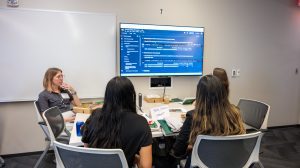
By Sydney Idzikowski and Austin Trujillo
The Charlotte Regional Data Trust brings together data that typically exist in silos to inform effective decision-making and better understand the complicated issues our communities face. Over the past ten years, the UNC Charlotte Urban Institute and Mecklenburg County Community Support Services have worked together to advance data-driven efforts to address housing instability and homelessness.
Here, we dive deep into what we’ve learned together through linking data about people experiencing homelessness to better understand how people are served across systems […]

Sarah Ostyn, The Early Action Project
Young people hear many messages about what comes next in life: go to college, start a career, move up. For many college students with disabilities, however, the path from school to work is far less straightforward. Between 12 and 19 percent of college students report having a disability, and for many of them, preparing for life after graduation involves challenges that extend well beyond coursework. As a result, young adults with disabilities are far less likely than their peers to enter the workforce feeling prepared.
A recent study by UNC Charlotte professors and Gambrell Faculty Fellows Othelia EunKyoung Lee, Ph.D., and Stella Y. Kim, Ph.D., takes a closer […]

By Austin Trujillo
I reflected on this question for some time last month as I stood in the dark among a crowd of 300 people in my small community of China Grove. We watched as a group of Buddhist monks, who had been traveling for 83 days, waved to my wife, my four-month-old son and me. They were on their way to our local community center to spend the night before continuing their 120-day journey toward Washington, D.C. Their goal was simple, yet profound: spreading a message of peace, love and kindness, both through their words and their demonstration of a peace walk across America.
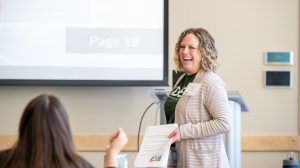
By Bridget Anderson
“We know our impact, but how do we move others to see it too?” I hear this question often in my role as coordinator of the Impact, Data and Evaluation Academy. Data are everywhere in today’s world, and nonprofits are no exception. Yet making sense of it—deciding what data matters, how to use it, and how to communicate it to the right audience—can feel overwhelming. Turning numbers into persuasion is as much an art as it is a technical skill. This spring, a new three-part learning series is designed to bridge that gap. The Art of Data […]
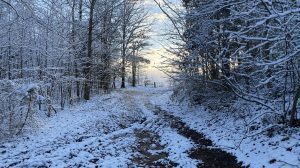
By Lori Thomas, Ph.D.
For more than 25 years, I have been driving from a blue dot to a red dot, from the cities where I have lived in my adulthood to the rural Appalachian home of my childhood, with which I remain physically, emotionally and spiritually connected. Over the past 10 years, I’ve watched […]
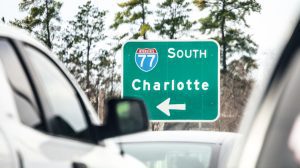
By Clayton Sealey
2025 was Charlotte’s most consequential moment for transportation.
With support from local leaders, state legislators passed the Projects for Advancing Vehicle-Infrastructure Enhancements Act, or P.A.V.E Act, giving Mecklenburg County – and neighboring counties – the ability to ask voters whether they wanted more tools to fund transit. Shortly after, voters in Mecklenburg County approved a long-awaited transit referendum, signaling public support for expanding transportation options beyond driving alone. Collectively, these decisions suggested a shift in how those in Charlotte expect transportation to work.
Public attention soon followed. The focus? Buses, rail and novel approaches to our long-term transportation needs. The conversation? Loud, emotional and long overdue.
But while most eyes were on transit, another major transportation initiative moved forward under our noses […]

By Katie Zager
If you’ve ever wondered what a day in the life of a researcher, data scientist, data wrangler or research translator was like, this series is for you. Over the next year, you will have the chance to meet a few of the Charlotte Urban Institute staff members right where they are – in life and at work. These are our stories. Read about Katie Zager first.

By Asha Ellison
Over the next year and a half, with support from The Gambrell Foundation, ten UNC Charlotte faculty members will participate in the kind of innovative scholarship that does just that – lead to a greater quality of life. As the seventh cohort of the Charlotte Urban Institute’s Gambrell Faculty Fellowship, professors Dante Bryant, Ph.D., Helen Davies, Ph.D., Nathaniel Elberfeld, M.S., Marianna B. Ganapini, Ph.D., Braveheart Gillani, Ph.D., Carlos Gonzalez-Calderon, Ph.D., Sijia Qian, Ph.D., and Tamara Williams, MFA, will study topics that investigate everything from the health implications of transporta[…]
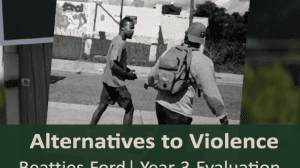
By Fatima Rodriguez Caba
In 2019 and 2020, homicide rates within Charlotte rose by 45%.
This rise motivated the City of Charlotte to implement the Alternatives to Violence program within the Beatties Ford Road corridor. The corridor includes historical landmark neighborhoods and sites, Black-owned businesses and Johnson C. Smith University, Charlotte’s only historically Black college. While rich in community, history and culture, the corridor has borne the burden of historical discrimination and marginalization (e.g., redlining, predatory lending), resulting in a lack of socioeconomic development and resource investment– leading to disproportionately higher rates of poverty, crime and violence within the corridor […]

By Sydney Idzikowski
We are pleased to release the second annual State of Our Data report! The report provides the Charlotte Regional Data Trust Board of Directors, as well as our communities, partners and stakeholders with an annual update and summary of our community data ecosystem. The report also dives into the data we hold in trust and why it matters, and the work we do at the Charlotte Urban Institute and Regional Data Trust […]
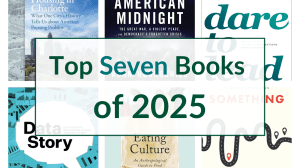
By Bianca Bagley
Researchers are busy people who make time to read. Our staff enjoyed a range of titles this year that gave them insight into the various topics they study. Looking for your next 2026 read? Here are seven books that […]

By Katie Zager
Chamberofcommerce.org, a business-minded website recently published an article outlining the cities with the most “House Poor” Homeowners. They define “house poor” as synonymous with “cost burdened,” using the 30% rule. That is: a household is considered cost-burdened if they spend more than 30% of their income on housing and housing-related expenses, such as insurance and utilities.
But, it time to rethink the 30% rule […]